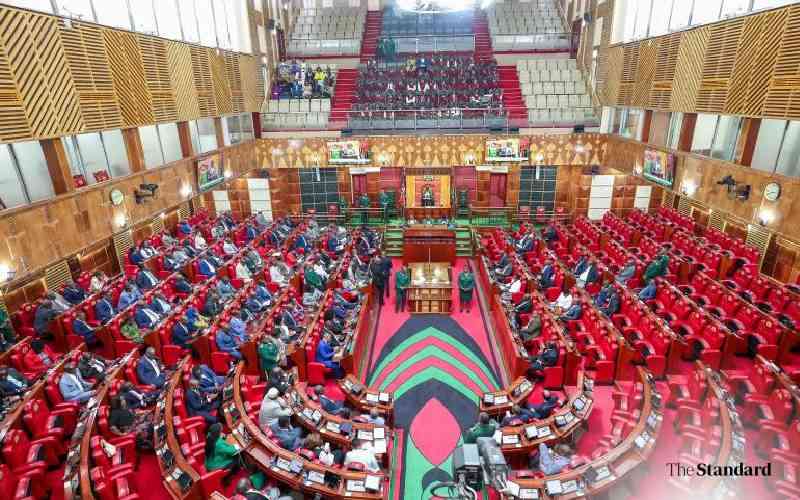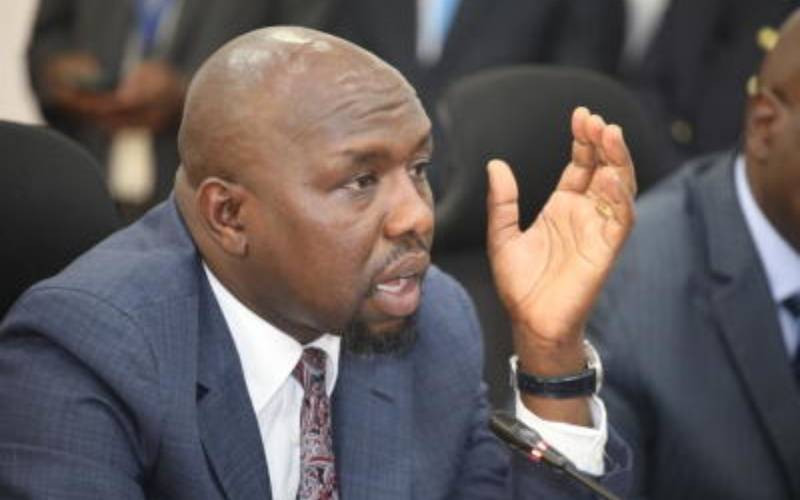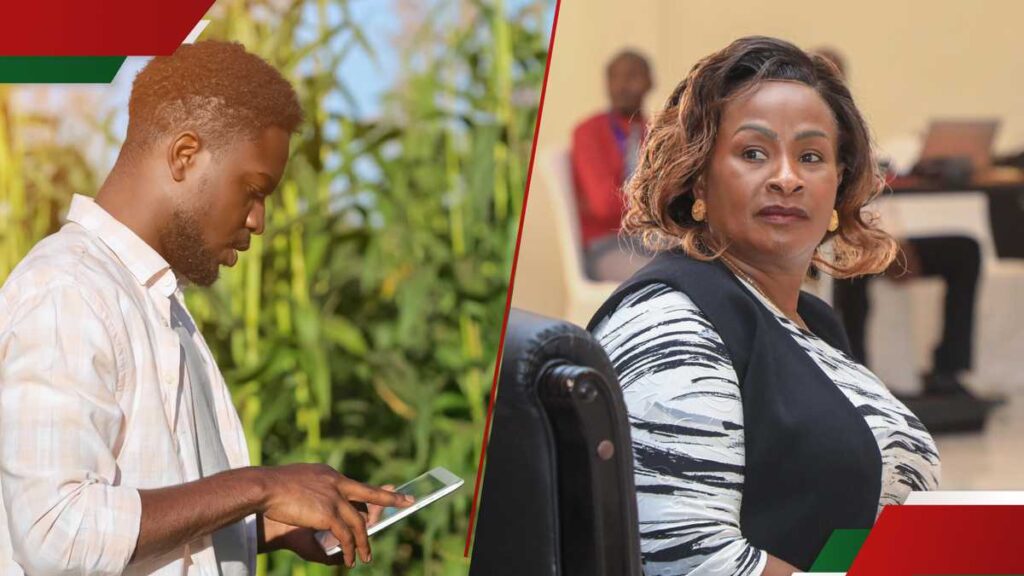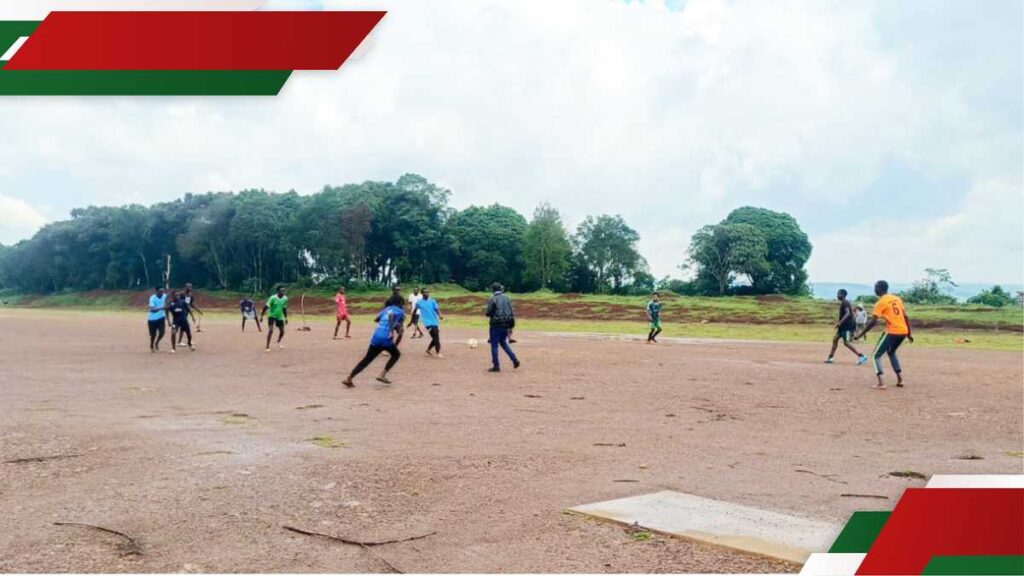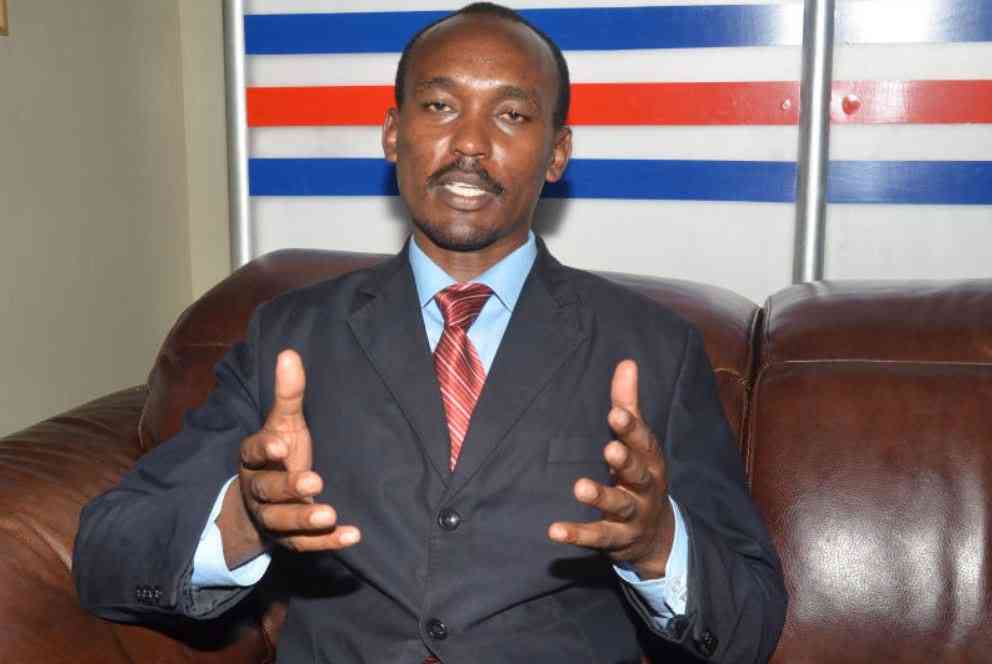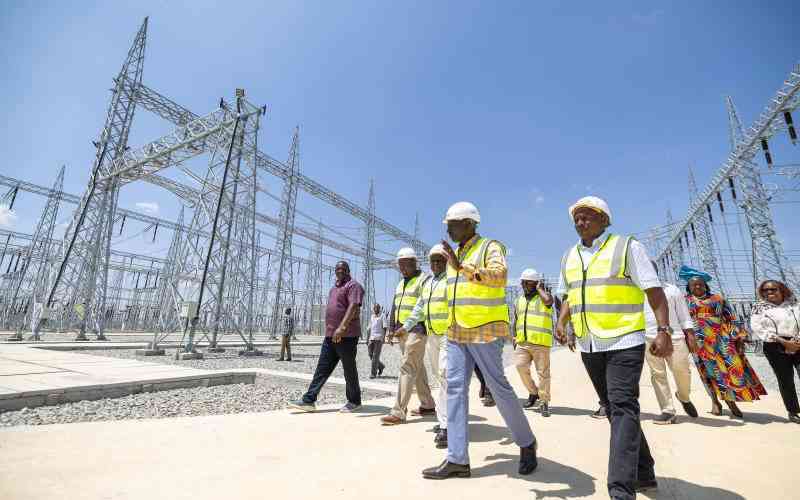The ongoing push by Parliament to amend the Constitution through a proposed Bill faces a fresh hurdle following the filing of a petition at the High Court challenging the legality of the process.
The lawsuit, filed under a certificate of urgency by Katiba Institute and four other civil society organizations yesterday, seeks orders to bar the National Assembly from proceeding with the Constitution of Kenya (Amendment) Bill, 2025.
Katiba Institute, The Institute for Social Accountability, Centre for Enhancing Democracy and Good Governance, Kenya Human Rights Commission, and Transparency International-Kenya argue that the Constitution of Kenya (Amendment) Bill, 2025 is legally flawed and financially wasteful, asserting that the proposed amendments are unnecessary, risk undermining constitutional principles, and represent a misuse of public resources in a fiscally constrained environment.
“The push by the National Assembly to amend the Constitution, while within the sovereign prerogative of the Kenyan people, is presently being misused to entrench unnecessary matters without regard to the implications, in terms of wastage of public resources, on the sustainable delivery of essential services to the Kenyan people,” the petition reads in part.
The petitioners argue that Parliament has “jumped the gun” by initiating constitutional amendments without first enacting a referendum law, as mandated under Article 82 of the Constitution.
“Constitutional amendment contemplated under Chapter Sixteen of the Constitution is an arduous and convoluted process that cannot be undertaken without first setting the guiding statutory and procedural rubric,” reads the petition.
The applicants maintain that, without a referendum law, there is no legal framework to guide how amendments touching on entrenched provisions, such as the structure of devolved government and functions of Parliament under Article 255(1)(h) and (i), should be handled.
The Bill, introduced in the National Assembly on March 12, 2025, is sponsored by MPs Otiende Amollo and Samuel Chepkonga.
It seeks to entrench three national funds into the Constitution: the National Government Constituency Fund (NGCF), the Senate Oversight Fund (SOF), and the National Government Affirmative Action Fund (NGAAF).
According to its sponsors, the objective is to provide these funds with constitutional status and ensure their permanence.
However, the petitioners argue that these funds already exist or can be legally established through existing legislation, making constitutional entrenchment unnecessary.
They contend that the proposed amendments distort the separation of powers and undermine the integrity of the Constitution.
The petitioners, through their lawyer Joshua Malidzo Yawa, describe the Bill as “constitutionally superfluous” and contrary to both the letter and spirit of the 2010 Constitution.
“This is an abuse of constitutional processes. What we are witnessing is an attempt to misuse the amendment mechanism to formalise budgetary practices that are already allowed under the current legal framework,” Malidzo states in court papers.
Stay informed. Subscribe to our newsletter
“We do not need to constitutionalize everything, especially when it involves public resources. Embedding these funds in the Constitution not only undermines its sanctity but exposes the public to wasteful spending,” the petitioners say.
They are also seeking interim court orders to suspend a series of public participation forums scheduled to begin on May 5, 2025, across all 290 constituencies.
They argue that proceeding with these forums in the absence of constitutional clarity will further waste taxpayer money.
The petitioners highlight that the country is currently operating in a fiscally constrained environment and contend it is unreasonable for the government to spend between Sh10 million and Sh100 million on public participation for what they describe as an “ordinary legislative proposal.”
They assert that such proposals do not require hearings in every constituency, yet the public forums for this Bill are scheduled not only in all 290 constituencies but also in multiple locations within each constituency.
“There is therefore a real risk that scarce public resources are in the process of being channelled towards an otherwise legitimate constitutional process, but which on close scrutiny is not only constitutionally superfluous but also runs afoul of established constitutional principle,” Malidzo argues.
The petition further notes that existing laws already allow for the establishment and management of the targeted funds.
The NGAAF has operated since 2016 under the Public Finance Management Act.
The NGCF has been upheld by the Supreme Court as constitutionally sound, while the Senate’s oversight role is funded through the Parliamentary Service Commission and national budget allocations.
Petitioners also argue that the proposed SOF duplicates mechanisms already in place for Senate oversight.
“Kenya’s public resources are limited. We should not be expending hundreds of millions on an unnecessary constitutional amendment process. The public deserves better prioritisation,” said lawyer Malidzo
They warn that the proposed amendment could compromise the Senate’s independence. In particular, they take issue with the suggestion that the SOF be financed by the national executive.
“This proposed amendment invites a constitutional crisis,” says Malidzo
“The Senate, which is constitutionally mandated to oversee national revenue and State officers, cannot be expected to function independently if its funding is controlled by the very arm of government it is meant to monitor.”
According to the petition, the Bill also interferes with constitutional financial structures.
The NGCF, for instance, is intended to fund development projects at the constituency level, tasks already assigned to the national government and budgeted under existing frameworks.
Creating a separate constitutional fund, the petitioners argue, would only lead to duplication and fiscal inefficiency.
Beyond the substance of the Bill, the petition challenges the legality of the process being followed.
A central concern is the absence of a law regulating referenda.
The petitioners argue that the proposed amendments affect entrenched constitutional provisions, specifically those relating to the functions of Parliament and the structure of devolved government, and therefore require a referendum under Article 255.
More than 14 years after the Constitution was promulgated, Parliament has yet to enact a referendum law.
The petitioners argue that this omission creates a legal vacuum that threatens the legitimacy of any amendment affecting entrenched provisions.
The petition raises several constitutional questions, such as: Who determines whether an amendment touches on protected provisions? When should this determination be made? And in the absence of a referendum law, can Parliament lawfully proceed with such amendments?
The petitioners are seeking the court to give 13 reliefs, including a declaration that the Constitution of Kenya (Amendment) Bill, 2025 is unconstitutional.
“We seek the court to declare that the Constitution of Kenya Amendment Act, 2025 is unconstitutional for failing to explain in its memorandum whether the proposed amendments touch on provisions of the Constitution whose amendment would require approval in a referendum,” the petition reads in part.
The petitioners maintain that the amendments violate constitutional values such as responsible public spending, sustainable development, and good governance.
They also urge the Court to declare that no constitutional amendment affecting entrenched provisions should proceed until Parliament enacts a law to regulate referenda.








